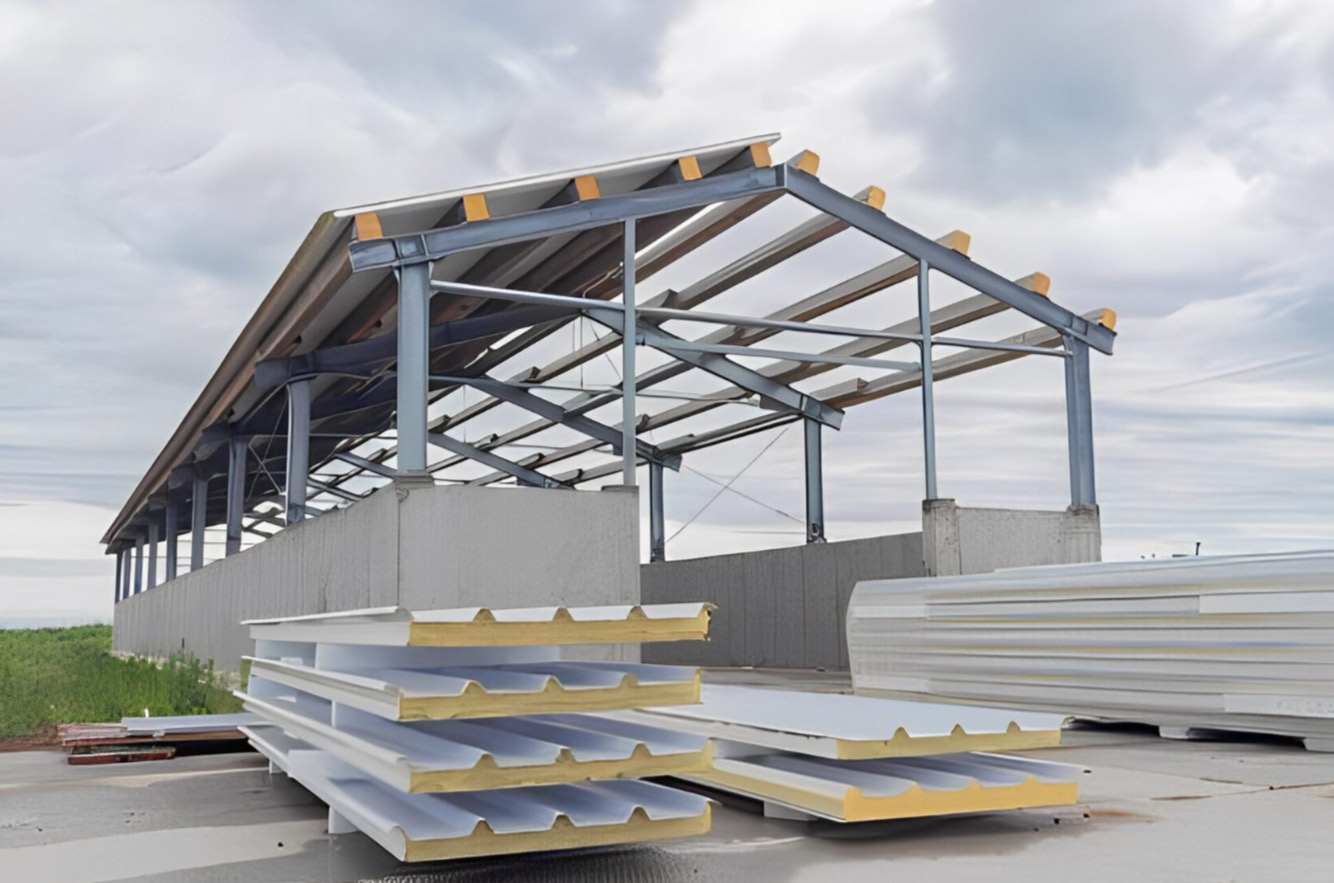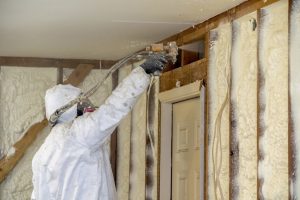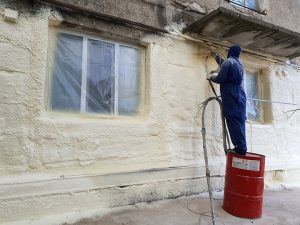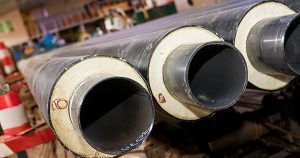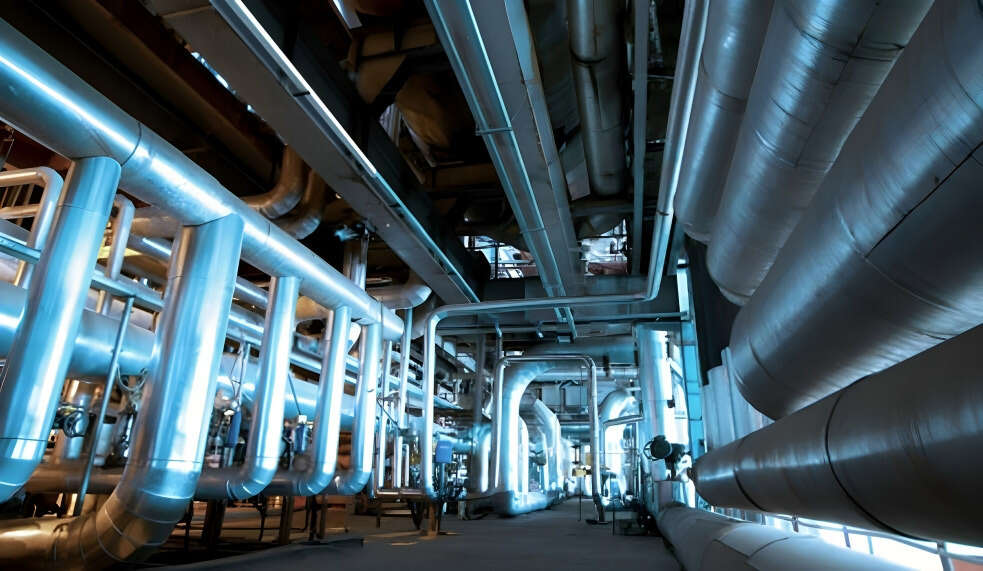
Sandwich panel insulation
Rigid foam
Sandwich panels consist of two thin metal layers with an insulating material filling the space between them. Today, the most commonly used insulating material for this purpose is rigid polyurethane foam. This product helps conserve natural resources by reducing energy loss and, due to its lightweight, good insulating properties, and excellent durability, is used in various industries, including cold storage, large tank and pipe insulation, building doors, refrigerated vehicles, HVAC ducts, and building panels. These systems can also be designed with flame-resistant properties.
Product codes
Related industries
Some advantages of polyurethane sandwich panel foam:
- Suitable physical and mechanical properties
- Lightweight
- Easy and fast installation
- Excellent insulation
- Excellent adhesion to metal sheets
What is a sandwich panel? (Introduction to sandwich panels)
A sandwich panel is an advanced construction material consisting of two metal cover layers and an insulating core. The insulating core can be made from various materials, and these panels are widely used in different industries due to their excellent thermal and sound insulation properties. In other words, sandwich panels serve as insulators, and the key factor determining their insulation performance is the core material. Below, you’ll find more details about the common materials used as the core of sandwich panels.

Types of sandwich panel filling foams
Types of insulation used in sandwich panels include expanded or extruded polystyrene (EPS or XPS), polyurethane (PUR) or polyisocyanurate (PIR), rock wool, and fiberglass wool. Below is a detailed explanation of each type:
Expanded Polystyrene (EPS)
EPS is a lightweight, cost-effective insulating material often used in sandwich panels. It is made from polystyrene beads that expand with pentane gas, forming a cellular structure. While it is easy to cut and install, its mechanical strength is not very high, making it susceptible to damage from impact.
Extruded Polystyrene (XPS)
XPS is another type of polystyrene insulation made through extrusion, with a closed-cell structure that provides better thermal and compressive insulation compared to EPS. However, its insulating performance is generally lower than that of polyurethane.
Polyurethane (PUR) and Polyisocyanurate (PIR)
Both PUR and PIR are high-performance foam insulations with a closed-cell structure, offering very low thermal conductivity. PIR is more fire-resistant than PUR, performing better at higher temperatures. These foams are lightweight, strong, and easy to install.
Rock Wool
Rock wool, or mineral wool, is an insulating material made from basalt and dolomite. It is excellent for thermal and sound insulation, and its fibrous structure makes it fire-resistant, maintaining its performance even at high temperatures. It’s commonly used for pipe insulation and in warehouse roofing.
Fiberglass Wool
Made from glass fibers, fiberglass wool is another thermal and sound insulation material with good fire resistance. While it is effective at soundproofing due to its fibrous structure, it can pose health risks, as its fibers can cause respiratory and skin issues.
Best insulation for sandwich panels
Choosing the best insulation for sandwich panels depends on the specific needs of the project. However, polyurethane (PUR) and polyisocyanurate (PIR) are generally considered the top choices due to their superior thermal insulation, lightweight properties, and excellent mechanical strength.
Polyurethane Insulation
Excellent Thermal Insulation
Low thermal conductivity significantly reduces energy costs for heating and cooling.
Lightweight
Its closed-cell structure makes it light, facilitating easy transportation and installation.
High Durability
Strong mechanical resistance to pressure and impact.
Moisture Resistance
The closed-cell structure prevents moisture absorption, maintaining insulation performance in humid conditions.
Easy Installation
Due to its light weight and high strength, polyurethane sandwich panels are easy and quick to install.
Polyisocyanurate Insulation
Superior Fire Resistance
Compared to PUR, PIR offers better performance at high temperatures and is more fire-resistant.
Durability
PIR panels are more resistant to weathering and environmental conditions, offering a longer lifespan.
Easy Installation
Like PUR, PIR panels are easy to install and require minimal maintenance.
Key benefits of polyurethane and polyisocyanurate sandwich panels
Energy Savings
Excellent insulation reduces heating and cooling costs.
Fire Safety
PIR’s high fire resistance enhances building safety. Additionally, PUR can easily be made fire-resistant with the help of flame-retardant additives.
Durability and Low Maintenance
These panels have a long lifespan and require minimal maintenance. These materials are resistant to corrosion, various weather conditions, and pest infestation.
Design Flexibility
Suitable for various building types and customizable for different dimensions. These sandwich panels can be manufactured using either continuous or discontinuous methods and can be easily cut to different sizes.
Quick Installation
The lightweight nature of these materials speeds up the construction process.
Lightweight Yet Strong
Despite their light weight, these panels provide structural strength and are easy to transport.
Applications of polyurethane sandwich panels
Polyurethane sandwich panels are widely used in various industries due to their superior thermal and sound insulation properties, including the following:
Industrial and Commercial Buildings
Commonly used for warehouses, factories, and commercial centers due to their excellent thermal insulation and quick installation.
Residential Buildings
Used for walls and roofs in homes to reduce energy consumption and improve indoor comfort.
Cold Storage and Clean Rooms
Ideal for maintaining internal temperatures and preventing external air infiltration.
Temporary Constructions
Easy to transport and install, making them suitable for temporary structures like worker camps.
Buy high-quality polyurethane sandwich panel materials
Imen Polymer Chemie Co. is a leading manufacturer of polyurethane and polyisocyanurate raw materials for sandwich panels. The company has long been active in the polyurethane industry, supplying raw materials to many major companies. With a focus on innovation and continuous product improvement, the company has established a strong reputation in the competitive market. Imen Polymer Chemie offers durable, high-performance products that meet the diverse needs of customers across various industries.
Imen Polymer Chemie
Some of our latest

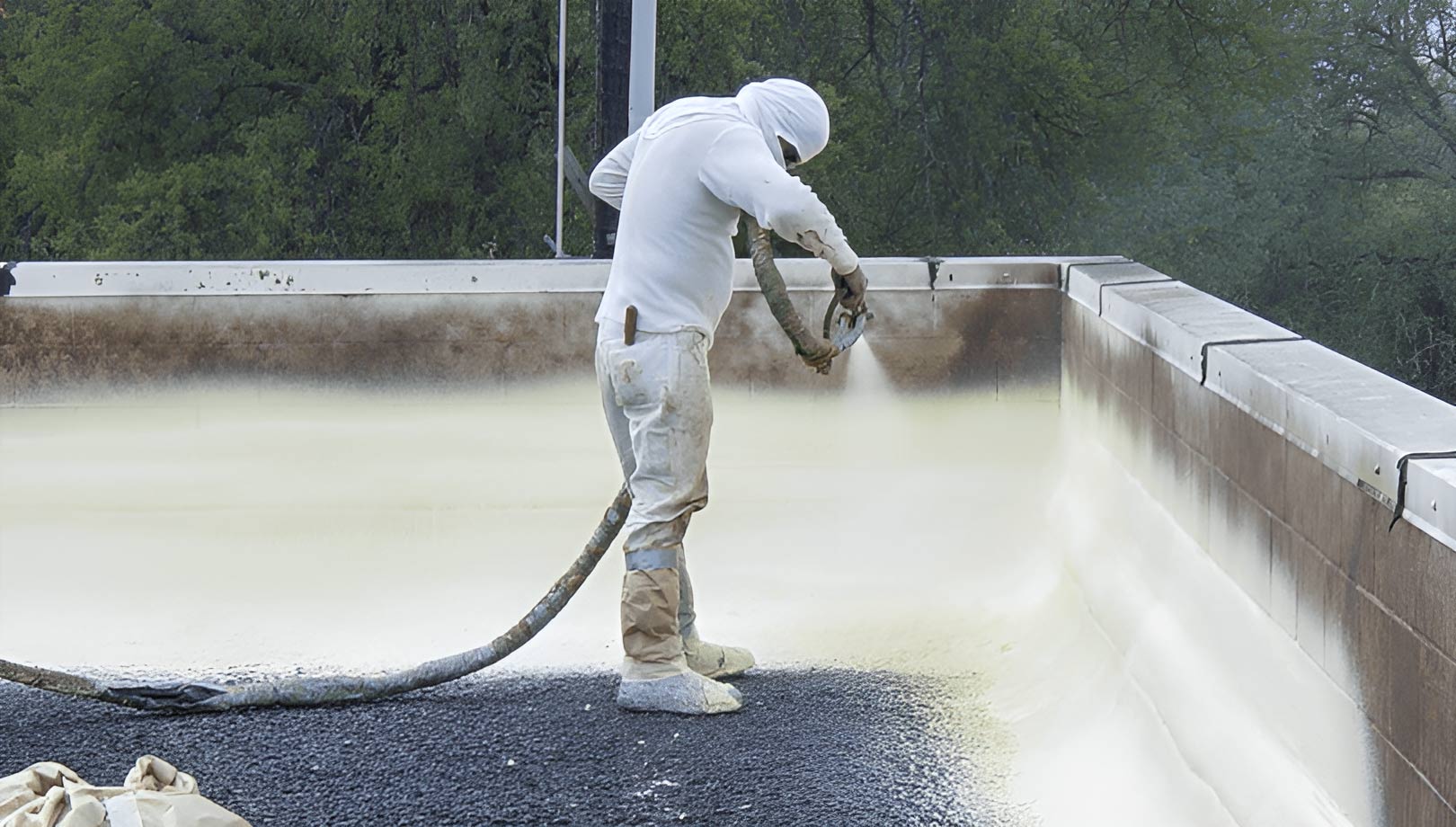
Spray polyurethane foam roofing
